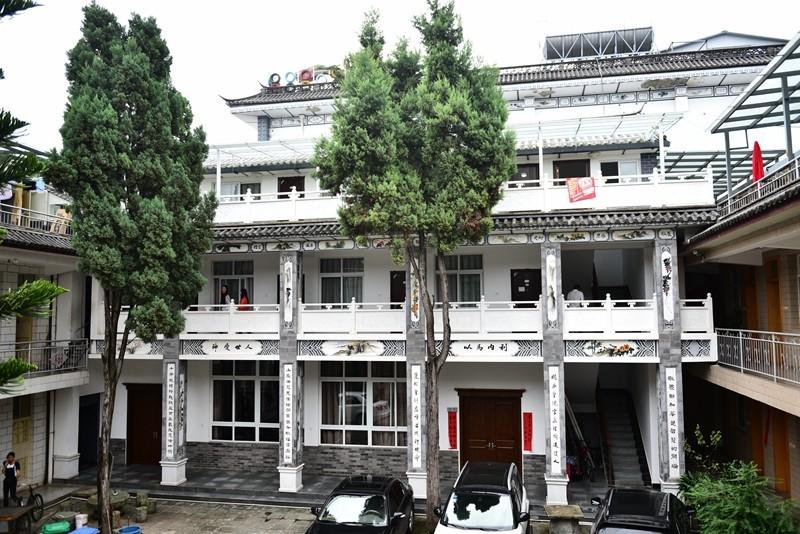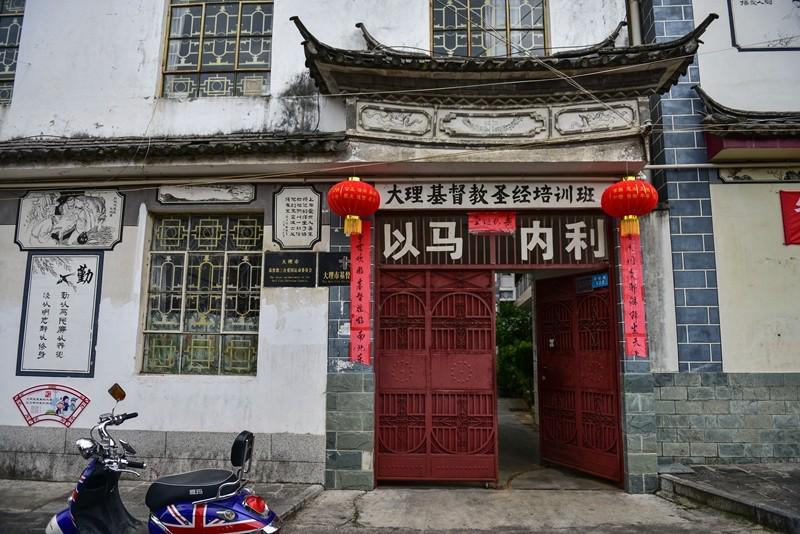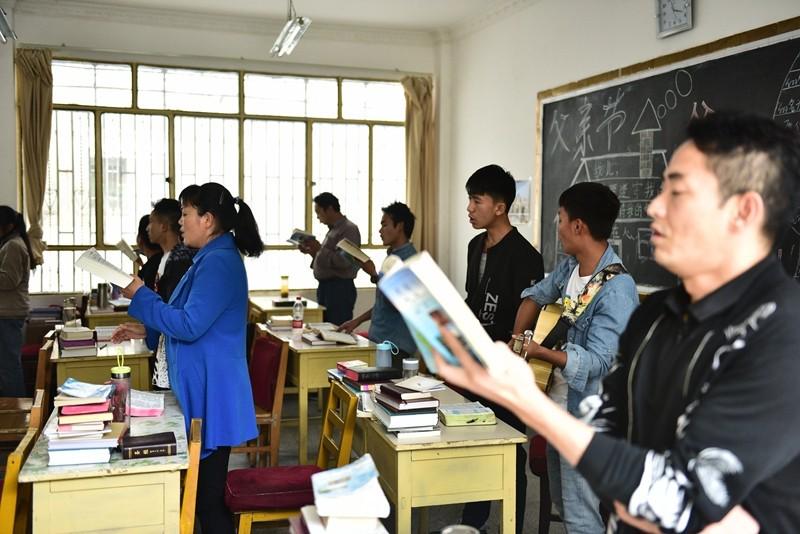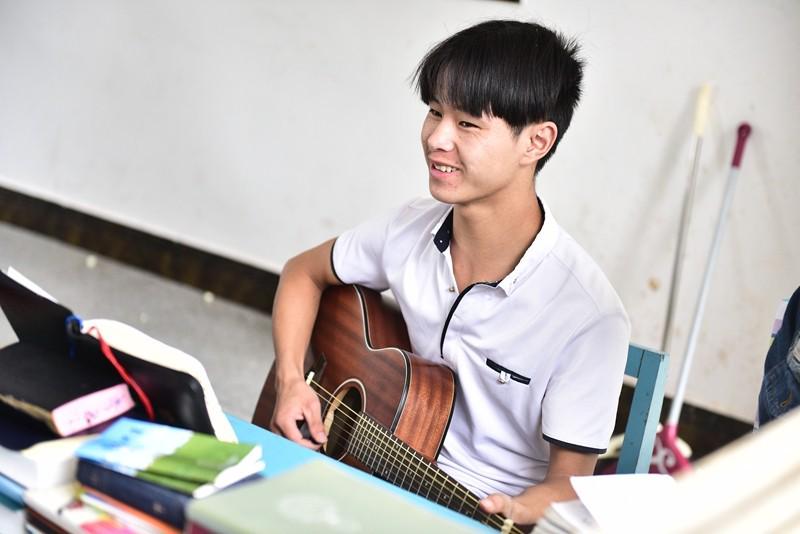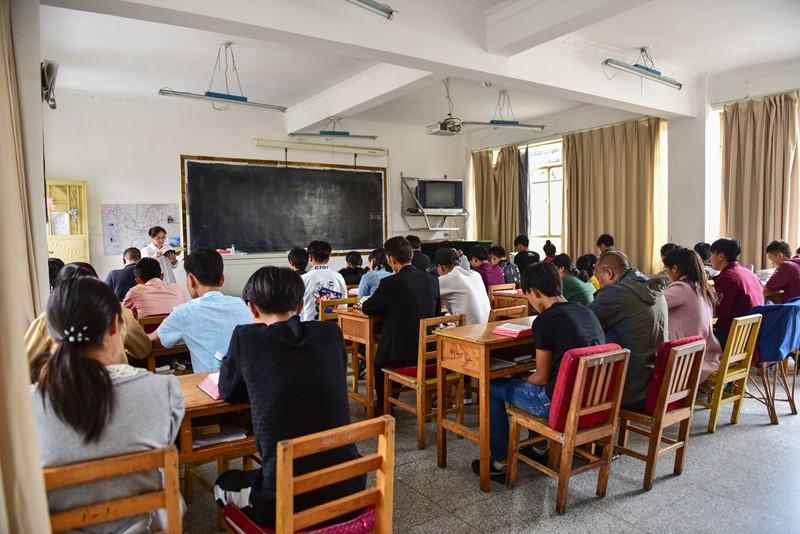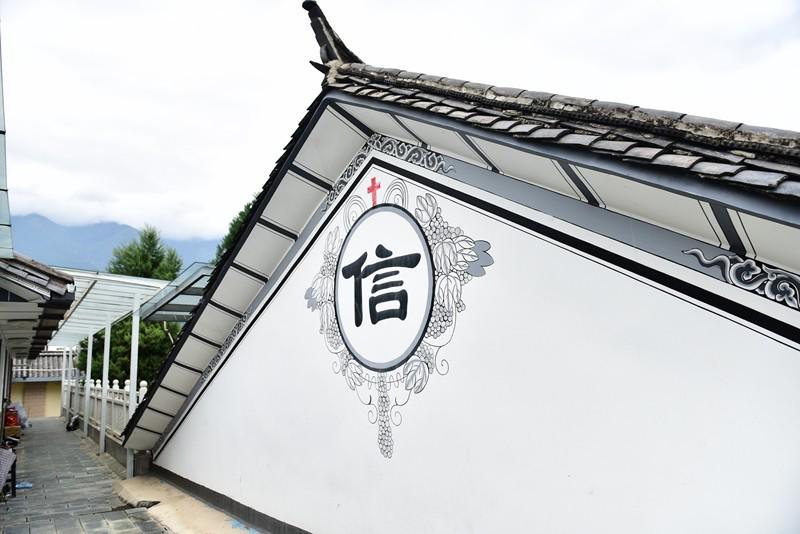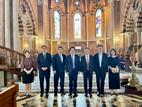The church in Dali, Yunnan was started 1881, as the first stop of evangelization. Missionaries from the China Inland Mission and the Anglican Church shared the gospel and built hospitals and schools in Dali. However, Bai people rarely converted to Christianity because they respected their own culture. Dali Gucheng Church was constructed in June 1904 and had over 20 elderly members and an aged elder. There were very few young believers.
Dali Bible School sits in a four-sided courtyard with Bai features in Dali Old Town, the ancient city of Dali, Yunnan. Founded in 1999, the school has 12 full-time teachers and 90 undergraduates from Han and the other 17 ethnic minorities including Bai, Lisu, Yi, and Miao.
During the vacation of 1995, Rev. Deng, a seminary student then, held a half-month long training program for local believers in the ancient town. At that time, there were just over 1,000 Christians in the Dali Bai Autonomous Prefecture of northwestern Yunnan province. He discovered that some of the participants from other places like Lijiang and Baoshan arrived there with their baggage on their backs. Seeing a desperate lack of theological education in Yunnan, he wanted to work in that field. After graduation in 1996, he moved to Dali.
Two years later, he conferred with the church's elder on using the quadrangle leased out as the training place. The courtyard houses were purchased by western missionaries and a bit run-down.The elder agreed, although the church stopped collecting the rent used to pay the preachers.
In 1999, Dali Bible School recruited the first batches of students. It had four teachers including a church elder and they were not paid due to the financial difficulty. It was small but complete: a few wooden houses became classrooms and dormitories and the other rooms were used as the teachers' office and a kitchen. "Though it was hard, God's grace was abundant and everyone was all of one mind." Deng told the China Christian Daily. To save 1700 yuan, the teachers led the church's congregation to clean and renovate the school. Even a brother was injured during the work.
One year later, the staff enlarged the campus. To be economical, the first theological students joined in the construction of a two-story building and it just costed 400,000 yuan. In 2003 and 2006, the school built some houses, turning its campus into an elegant quadrangle characterized by Bai minority culture. The duration of the two-year theological program was lengthened to three years and the school kept introducing new teachers. "Our work is for the demand of the church in Yunnan rather than to merely run a school. It was God's grace because the church and Christians in Dali Prefecture are very limited. Apparently, there was no need or means to run a school, but God let us achieve this." Said Rev. Deng.
Mr. Bao has been the school's teacher for six years. He teaches hermeneutics, homiletics, devotionals and how to do a Bible study. He stated that most of the students in the provincial Bible training classes had just a primary or middle school education and were children of Christian families. The reasons why they studied theology varied: parents' expectation, recommended by their mother churches who considered them young and promising, out of a desire to serve the church as well as an interest in the Bible without following Jesus.
Bao said, "The goal for our students is that we encourage middle or high school graduates who are committed to God to further study in Sichuan Theological Seminary and Nanjing Union Theological Seminary after graduation (from our school); we hope older students to understand Christian faith, master the biblical foundation, and rightly handle the word of truth; those who fail to pursue further studies can grasp biblical knowledge as well as social and cultural knowledge and can serve the church when they are back." He added that it was a school with "strong national traits". He felt the warmth of ethnic minority believers, their innocent faith, and persistence to keep liturgical traditions.
He tells his students that faith comes first and to live at peace with other ethnic communities. He also shared that preachers of the churches in minority districts needed to support themselves while working in the church. Bao held that the churches in those areas needed to receive training in pastoring ministry. He instructed his students to have the conscience of paying preachers and a right understanding of theology. They should not be affected by sectarianism introduced from foreign countries to break the unity of the church or blindly destroy church traditions just because of theological teachings.
"I also hear that some preachers club together to visit believers. I want to encourage them to serve full time, but they answer that they can't because they have to care for their parents along with their children." Said Bao.
Meanwhile, he told that the school provided much helpful material to social service ministries including hospice care for patients with AIDS in the churches of Baoshan and Lincang. Preachers needed to have a thought of combing the gospel with social work and make theology "down to earth". The school plans to open related courses.
Despite few Christians in Dali Prefecture and that fact that Bai people are hard to accept the gospel, each of the twelve counties and cities in the prefecture has preachers.
The majority of the school's graduates work as both preachers and workers in social service in Yunnan. They help people infected with HIV and drug addicts.
When a new school term begins, the school organizes its students to read the Bible. Its philosophy is to train students based on the Bible, establish their faith, and serve the church. It promotes national integration and the transformation of the concepts of ethnic minority Christians.
"Although Dali Old Town is a small ancient city, it is a big world where all types of people visit. You may feel quiet in the Bible school, while there's a lot going on outside. So it is no short of culture, knowledge, and experience." Said Rev. Deng.
Currently it needs to enlarge its library whose area is just 60 square meters (0.09 acres) with over 1200 books. There is a lack of Christian books on spiritual growth and nurturing and commentaries. In addition, management devices are needed. Disorder in borrowing and returning books always happen, so the school plans to put new bookshelves, desks, and chairs in the library. The books' number will be increased to 10,000 and a new library management system will be set up. Then it will be available to the church staff in the precture.
Rev. Deng said that books concerning theology and society should be added. "Our students should know the church and also the society. Moreover, their qualities should be improved so that they can be faithful and wise preachers. Even though not professional, they are pragmatists, able to adapt to Yunnan and its cultural development."
- Translated by Karen Luo

